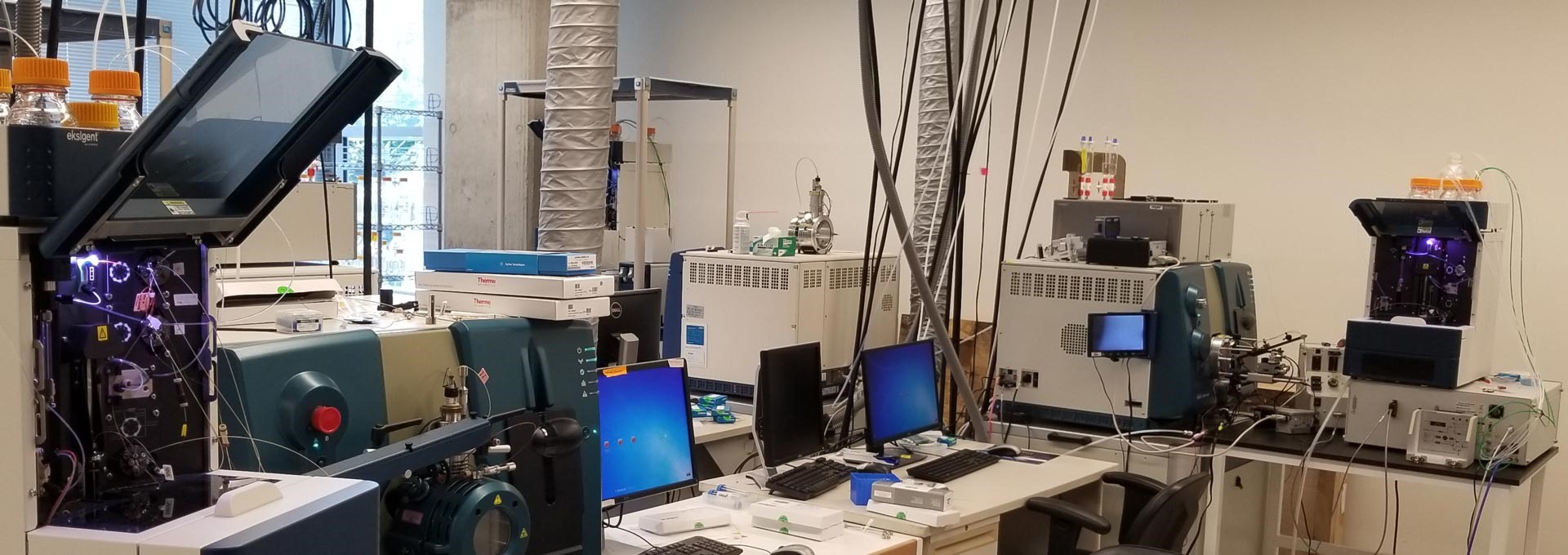A major goal for NCI’s Cancer Proteomic Tumor Analysis Consortium (CPTAC) is to translate proteomic technologies into clinical use to improve treatment and diagnosis of cancer. Dr. Amanda Paulovich and team from the Fred Hutchinson Cancer Research Center (members of the CPTAC Consortium) have achieved an important milestone in this regard, by establishing a Clinical Laboratory Improvement Amendments (CLIA) - certified laboratory for running targeted proteomic assays based on multiple reaction monitoring (MRM) mass spectrometry (MS).

Why is this a big deal?
The Center for Medicare and Medicaid Services (CMS) certifies laboratories and their tests to ensure they meet the requirements needed to be used as a clinical diagnostic tool for humans. It verifies that all tests meet certain federal regulations such as quality, accuracy, reliability, and timeliness, and that the laboratory environment has qualified staff, is properly maintained, and is safe. These regulations protect patients, giving them reliable information to use for their clinical care. Laboratory compliance requirements are overseen by CMS, the Center for Disease Control (CDC), and certain state Departments of Health. Needless to say, this certification isn’t just given to anyone!
MRM-MS is widely used in clinical laboratories for quantifying small molecules (e.g., drugs, metabolites), and recently a monoclonal antibody developed by CPTAC for immuno-MRM made it possible to translate into clinical use an MRM-based assay for quantifying the cancer biomarker thyroglobulin. This MRM-based assay has been implemented as a laboratory developed test (LDT) for quantifying the thyroglobulin protein in serum from patients who make autoantibodies that interfere with conventional immunoassays. This assay is now offered in four labs in North America.
CLIA certification of the Paulovich lab at Fred Hutch is a concrete step for CPTAC in further translating MRM-MS technologies into the clinic by providing a CLIA environment in which CPTAC’s targeted MS assays (e.g. assays.cancer.gov) can be run on patient samples. According to Dr. Jeff Whiteaker, Supervisor of the Paulovich CLIA Lab, “Bringing our assays under CLIA standards has helped improve the rigor and robustness of the targeted MS measurements, but more importantly, it has improved the overall operation of the laboratory. Under the CLIA guidelines, we have processes in place to continually improve the quality of assays and general lab processes.”
The Paulovich Lab’s first CLIA-certified assay uses MRM to quantify the HER2 protein in breast cancers. Although HER2 testing isn’t new, current testing methods have limitations that may be solved with a complementary MRM-based assay. For example, new classes of HER2-targeting therapies may show benefit in a subset of breast cancers with low levels of HER2 expression and no detectable ERBB2 gene amplification. MRM may provide a robust measurement of the HER2 protein in these patients. Additionally, the inclusion of HER2-specific isotopically labeled internal standards spiked into each patient sample controls analytical variation and allows the method to be adopted by other labs without the fear of subjective evaluations.
The MRM-based technique also allows researchers to multiplex proteins for quantification, evaluating multiple biomarkers at the same time. The team has developed and is developing more than 300 MRM-based fit-for-purpose validated assays to look at a swath of immuno-modulatory proteins in serum and/or tumor. The assays are being multiplexed into several one-stop assay panels to provide a stack of information to clinicians. According to Dr. Paulovich, “We hope that this assay resource will help to support the development and use of novel cancer immunotherapies.”
Drs. Paulovich, Whiteaker and their team member Dr. Andy Hoofnagle (University of Washington) are also working with a committee of collaborators and key stakeholders convened by the Clinical & Laboratory Standards Institute (CLSI) to develop a new guideline (C64-A) for quantification of peptides and proteins using MS. The guideline has been drafted and is currently available for public review. In the past, some CLSI guidelines have been recognized by the Food and Drug Administration, providing one possible path forward to regulatory approval. To help put this document in perspective, Dr. Hoofnagle, whose CLIA-certified laboratory runs several MRM assays for proteins, stated, “the field of clinical chemistry has been looking for guidance on how to develop these assays with robustness and our patients in mind. The experiments outlined in C64-A will facilitate rapid enhancements in patient care, and I am very excited that CPTAC investigators were able to contribute their experience and knowledge.”
The Paulovich Lab has a large menu of assays offered in their CLIA environment.
Congrats to the Paulovich team for such an exciting milestone in achieving the CPTAC Program’s goal of translating its proteomic assays and technologies into clinical use!
Photo credit: Richard G. Ivey

